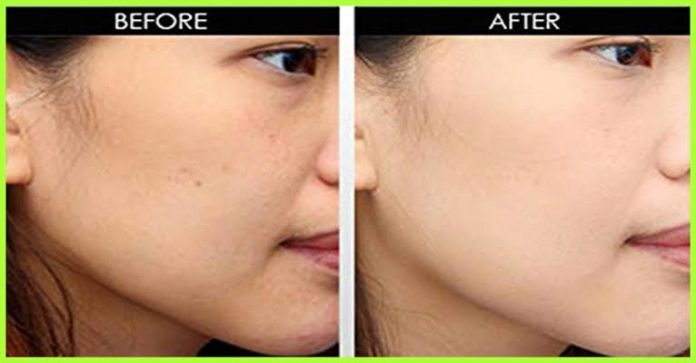Zaka started on a little scale. She was moved by the negative high talk of being too dark. She couldn’t belong. So she started rubbing the lightening cream, at least to change the face. She later realized she has got the cliche look of “Fanta face” – “Pepsi legs.” In other to avoid the ridiculous situation, she began “an all-white usage”, that is, on a full scale.
Skin bleaching is a cosmetic treatment to reduce the prominence of skin discoloration and even out the skin. To some, it is skin toning, fading, brightening or lightening. It is cosmetically changing the skin colour. The increment in bleaching situation in Nigeria spurs this discourse.
According to World Health Organization, 77 percent of women in Nigeria are currently using skin bleaching products. The highest in the world. Also, recently the World index Ranking puts Nigeria as the poverty capital of the world. Isn’t this ironical that the poverty capital of the world is the highest consumer of bleaching products, not even food products?
Related article: Bleaching Your Skin With Chemicals May Lead To Cancer, NAFDAC Warns Nigerians
Skin Lightening Creams, Soaps Now Banned In Rwanda
Why use bleaching creams? Many answers to this question portray low self-esteem and self-hatred. Psychologically, this self-hatred is usually pressured by societal projection. It often makes people to feel they are less important because of their skin colour. To belong, they yield to the pressure and do like Zaka. It is sacrosanct to remember the words of Marcus Garvey where he says “The black skin is not a badge of shame, but rather a glorious symbol of national greatness.”
Later, Zaka became a legend of skin bleachers. She not only used different skin toning products. She preferred the ones with high mercury as that could make the brightening perfect. At least, in her own view. As an influential person, her followers started feeling off without bleaching. So to belong, they started fading their skins, became dissatisfied not until they toned it all. Zaka became a “bleachingvangelist”.
As the female use the bleaching creams, the male started out to compete. Conducted research has shown that there is a tremendous increase of skin bleaching among male gender in Nigeria. To an exacerbating extent, parents now bleach the skins of their kids. Indirectly saying being black is unfortunate- a total loss of self-esteem. Some might even bleach babies in pregnancy.
Unfortunately, Zaka got sick and was later diagnosed of blood cancer- leukemia to be precise. The doctor explained that the excess use of bleaching products has made mercury containing dioxin to spread over her body and streamed to the blood. Few months later, Zaka died.
The death of Zaka was a gargantuan loss to her people, her followers especially. However, that did not stop them from towing the bleaching path left by Zaka. They assiduously maintained the chorus “bleach it all.” No sooner, the followers started having excruciating medical challenges. They were diagnosed of different diseases including skin cancer, skin infection, and cancer of the liver, premature aging of skin among others. Perhaps, they have forgotten that “The colour of skin, is in no way connected with the strength of the mind or intellectual powers.”
In short, it is high time as Nigerians and Africans we started loving ourselves. Active users of skin bleaching products should learn from the story of Zaka and stop. Individuals and parents should advocate “self-love”. This can be done by aligning with the words of Shanina Shaik which says “Look after yourself from within and your beauty will shine through your own skin.”
Note: Zaka is a fictitious character.
Afolabi is a student of Communication and Language Arts, University of Ibadan. Contact oafolabi259@stu.ui.edu.ng
















